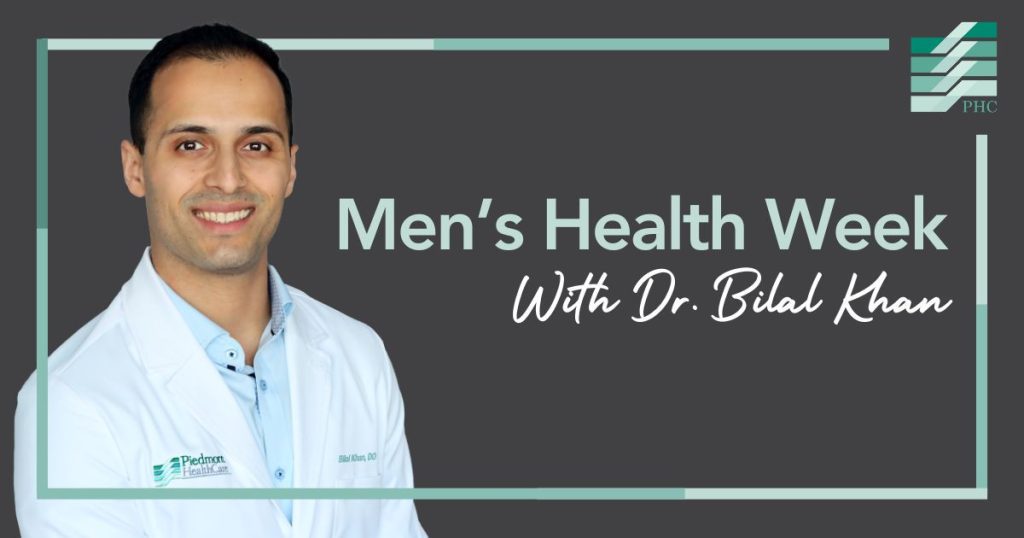June is Men’s Health Month, a time dedicated to raising awareness about the unique health challenges men face. Within this month, Men’s Health Week takes place from June 9–15, leading up to Father’s Day. Started by the Men’s Health Network, the week focuses on a different theme each year. This year’s theme, “The Empathy Gap,” shines a light on the lack of attention and resources dedicated to men’s health—especially in the areas of mental and physical well-being.
To help recognize Men’s Health Week, we spoke with Dr. Bilal Khan, a physician at Lake Norman Family Medicine, to get his insight on important men’s health topics.
What some proactive things men could do to have better health?
- Drinking at least 100 oz of water every day. Easier said than done but can help in so many ways including improved energy, focus, weight loss, building muscle.
- Regular exercise: at least 150 minutes per week. Both cardio and resistance training are important for men.
- Eating a Mediterranean diet – focus on whole foods, lean meats, fruits/veggies, whole grains, legumes and limiting fried foods, red meats, fast food, processed foods, and alcohol
- Form valuable friendships/social connections – men often lack a reliable social circle to maintain mental/emotional health
How often would you recommend men check in with their PCP?
Men should be checking in with their PCP at least once a year for their wellness physical. I see men in their 40s, 50s, 60s, etc that haven’t seen a doctor in over 10 years and are often sent in by their female partners. Having yearly vitals, blood work and addressing concerns no matter how small is very important.
What role does men’s mental health play in their overall health? And how should men take care of their mental health?
Mental health for men is a very underserved but important area of medicine. The majority of middle aged men are reluctant to discuss concerns for anxiety or depression for many reasons but societal expectations of men and gender norms being paramount. However in my experience, men are just as affected by these conditions by women. So the first step would be encouraging men to be open to identifying if they are struggling. Often times confiding about these feelings with someone such as a spouse, parent, friend, etc can be all that one needs. Beyond that, therapy and medications are both potentially helpful options that should be considered if you are struggling.
Misconceptions in men’s health?
Prostate exams are no longer a universal recommendation at every male physical. A lot of older men fear seeing a doctor for this reason. Of course, discussing screening for prostate cancer is important and should be a part of the male physical but a PSA blood test is the typical standard of care now.
Thank you, Dr. Bilal Khan, for sharing your expertise and helping keep our community stay informed about men’s health and wellness.
Dr. Bilal Khan








